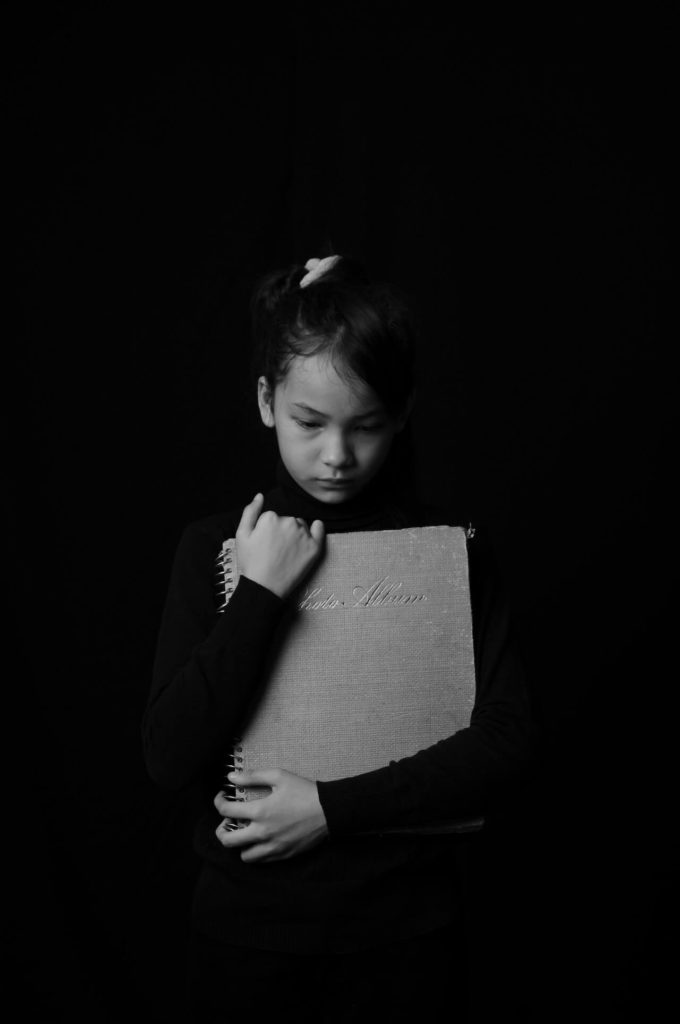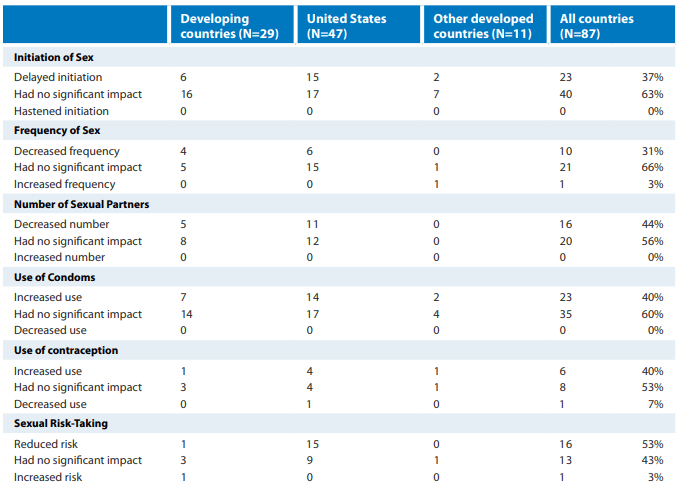Sex Education Benefits and Statistics
Sex Education Benefits and Statistics
Education helps children – that includes sex education
We know that a good education is important.
But when it comes to sex education, it can be easy to believe the myths – like “sex education encourages young people to have sex”.
The good news is that high-quality sex education is like any other education. It helps children and young people navigate the world, make informed choices, and develop critical thinking skills.
Sex education does not encourage children to have sex
In fact, it can have the opposite effect and delay the age that young people first have sex.
The United Nations Educational, Scientific and Cultural Organization (UNESCO) has reviewed 87 separate studies on the pros and cons of sex education. Their report is 137 pages long but here are a few highlights.
The benefits of sex education (based on 87 studies)
Most parents would celebrate the benefits of sex education, including:
- Waiting longer before having sex for the first time. There is absolutely no evidence that sex education encourages young people to have sex earlier. In fact, sex education makes it more likely that first sex will happen later, when a young person feels ready. And – most importantly – first sex is more likely to be consensual, meaning it’s wanted and agreed to.
And where young people are engaging in sexual activity then:
- Sex is less frequent
- They have fewer partners
- Safer sex with condoms is more likely
- There are fewer pregnancies
- There are fewer sexually transmitted infections (STIs)
- Young people are less likely to engage in risky behaviour, such as sex when using alcohol or drugs
- There is less “non-volitional” sex, meaning that sexual activity is less likely to be unwanted and non-consensual
For more details see the breakdown below.
A core part of relationships and sex education is protecting children and young people
Children in the modern world face many dangers. Recent child sex abuse and child sexual harassment statistics make for harrowing reading.
The evidence shows that sex education helps to reduce unwanted, non-consensual sex.
A central part of relationships, sex and health education (RSHE) is helping children develop skills to stay safe, online and offline.
In England, the relationships education curriculum at primary school is designed so children learn:
- How to recognise and report feelings of being unsafe or feeling bad about any adult
- That each person’s body belongs to them, and the differences between appropriate and inappropriate or unsafe physical contact
- How to respond safely and appropriately to adults they do not know (including online)
- How information is shared online and the rules for keeping safe online
- How to recognise online risks, harmful content and harmful contact, and how/where to report it
- How to report concerns or abuse, and the words and confidence they need to do so
- How to ask for advice or help, and to keep trying until they are heard
Where to get advice, for example family, school or other sources

Children need high-quality sex education
Like any education, relationships, sex and health education (RSHE) can be taught well or badly.
Since September 2020 it’s been mandatory for children to have relationships education in English primary schools (rules are similar but vary across Northern Ireland, Scotland and Wales).
Primary schools also teach about puberty and reproduction as part of the health education and science curriculum. Many schools also teach sex education, such as how human babies are made and born.
At secondary schools, the curriculum covers relationships, sex and health education.
Unlike other subjects, teachers are rarely specialists in RSHE. That’s why we recommend teachers always use high quality RSHE materials, recommended or written by sexual and reproductive health experts.
This is vital, because young people say that when RSHE is taught badly – as with any subject – they will disengage.
Children WANT high-quality relationships, sex and health education
Researchers at the University of Bristol reviewed 48 studies asking young people aged from 4 to 25 what they thought about the relationships, sex and health education (RSHE) they had at school. Their conclusions, published in the British Medical Journal, were that RSHE should be:
‘Sex-positive’ meaning focused on consent, choice and sexual wellbeing (rather than focused on abstinence), and delivered by experts who maintain clear boundaries with students.
They advised that schools “should acknowledge that sex is a special subject with unique challenges” and that young people will engage in a range of sexual activities.
Otherwise, “young people will continue to disengage from RSHE and opportunities for safeguarding and improving their sexual health will be reduced.”
A well-planned curriculum, delivered by trained experts is the ideal. But given the resources, particularly in smaller schools and primary schools, this isn’t always realistic.
At the Family Planning Association, we recommend using teaching materials written by subject matter experts. That might be our Yasmine and Tom lessons or course materials from another provider. Either way – using course materials created by RSHE experts helps schools to teach the curriculum confidently, safely and effectively.
High-quality sex education benefits: the statistics

